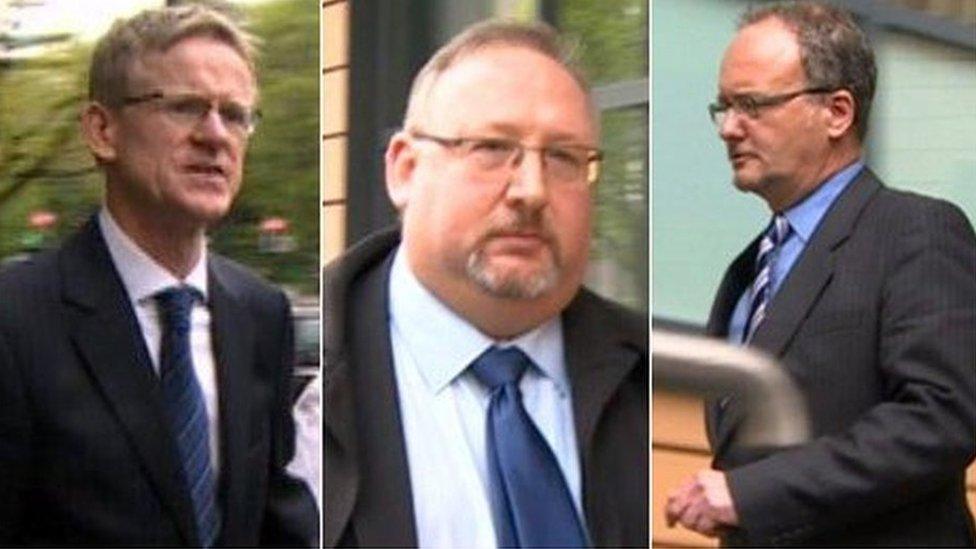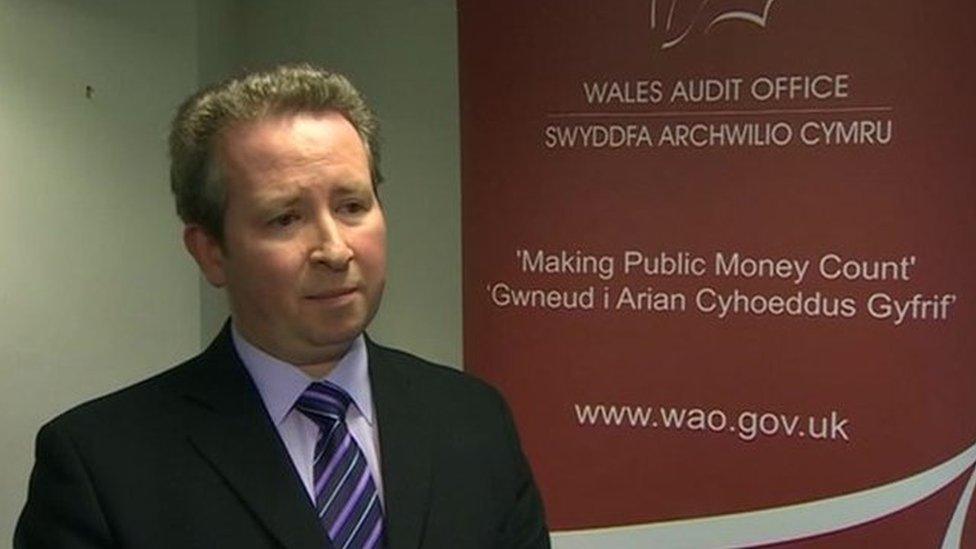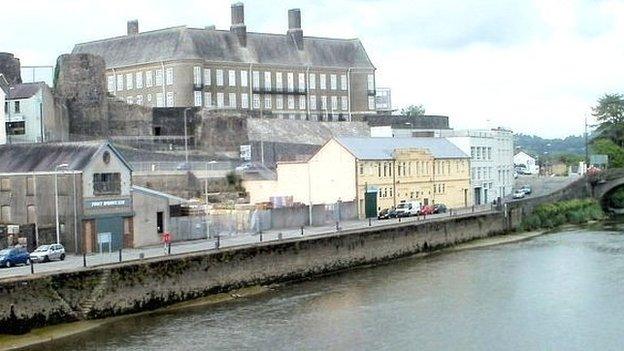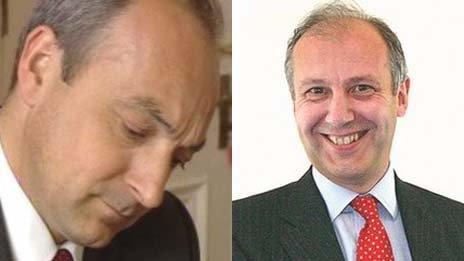Caerphilly council chief's complaint over 'unlawful' pay claim
- Published

Anthony O'Sullivan, Nigel Barnett and Daniel Perkins had charges against them dropped
The suspended chief executive of Caerphilly council has made a formal complaint against the assistant auditor general for Wales, Anthony Barrett.
Anthony O'Sullivan and two other council officers were investigated by police after a report by Mr Barrett claimed a process that saw them receive pay rises of up to 20% was "unlawful".
Misconduct charges were dropped last year after a judge dismissed the case.
The Wales Audit Office has said it treats all complaints confidentially.
It added that any complaint would be investigated internally.
BBC Wales has learned that as part of the complaint, Mr O'Sullivan has written to the chief auditor general for Wales, Huw Vaughan Thomas, questioning Mr Barrett's qualifications for the role, in particular his qualification to find something "unlawful".
The Wales Audit Office (WAO) is the public spending watchdog and Mr Barrett is responsible for auditing local government bodies.
A biography on the WAO website says Mr Barrett is a chartered public finance accountant and a certified fraud examiner who has held several positions as an auditor in the public and private sector.

Anthony Barrett is responsible for auditing local government bodies
Mr O'Sullivan, his deputy Nigel Barnett and the head of legal services Daniel Perkins have been suspended from their positions since 2013.
They were charged with misconduct in public office, but a judge dismissed the case at Bristol Crown Court in October.
In his ruling on the application to dismiss, judge William Hart said: "There is no evidence upon which a reasonable jury properly directed could convict any of the defendants of misconduct in public office on the admissible evidence available."
At the time the leader of Caerphilly council said "serious questions" must be asked of the investigation.
Earlier this year the UK government said it would not compensate Caerphilly council for the more than £1m cost of the criminal investigation into the suspended officers.
Failed vote
In January 2014, Mr Barrett published two reports saying Carmarthenshire and Pembrokeshire councils acted unlawfully when they let their chief executives opt out of a pension scheme to avoid potential tax payments.
Carmarthenshire council said its process had been flawed rather than its pension policy being illegal, but ended the arrangement following the report.
The findings by the WAO triggered a failed vote of no confidence in the leadership of Carmarthenshire council.
Pembrokeshire council insisted its pension payment policy was lawful, but accepted the findings.
A Caerphilly council committee is investigating the suspended officers. The council said the investigation was being conducted "fairly and thoroughly" in line with the statutory requirements.
The council said it did not want to comment on any complaints.
The WAO said it "treats all complaints received in confidence" in accordance with its policy.
- Published20 October 2015

- Published20 October 2015

- Published18 February 2014

- Published27 February 2014

- Published30 January 2014
